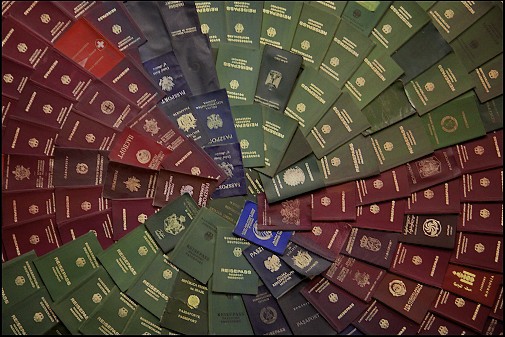The American government has (partially) shut down, and the internet is buzzing! Is this a breakdown of democracy? Are the Republicans acting like spoiled children, having lost the game but refusing to give up the ball. Or is it the Democrats fault, shoving through some unrealistic piece of trash and then insisting it be implemented? These are the kinds of serious questions currently sweeping across my Facebook news-feed. The fury with which frames these kinds of questions is telling: it is a constant reminder about how deeply our experiences and identities are tied up in the countries of which we find ourselves citizens.
Whether this takes a positive or negative tone, the binding together of personal pride and national citizenship is appropriately called patriotism: the love of country and willingness to sacrifice oneself for it.
It seems that patriotism is nearly universally held to be a positive attribute, at least in American culture. From a very early age we are taught to pledge our allegiance to this country, and are routinely reminded that those who do violence and suffer violence for its sake are to be regarded as heroes.
I am, of course, writing from an American perspective, but I am sure that citizens of other countries have had or are having similar experiences. National citizenship and identity: how are these to be related?
I think that Paul the Apostle gives us a helpful way forward. According to Acts, Paul is a Roman citizen, and he uses that citizenship and crucial times in his missionary work. It arguably saves his life on several occasions. What is interesting is that this aspect of Paul’s biography never comes up in his epistles. He doesn’t mention it, even when writing to the city whose authority grants him all the rights and privileges he enjoys. This has led some to speculate that perhaps Acts’ portrayal of Paul is, in this respect, false. I think this goes to far, and I think that there is good reason to think so based on what Paul does have to say about citizenship and his own identity.
Paul describes himself in many ways. “Apostle” and “slave” feature prominently, and both of these in relation to Jesus Christ. This is Paul’s primary means of self-identification: his relationship to Jesus Christ. This relationship is not what is usually meant in contemporary discussions when we say “relationship” not “religion.” I doubt very much that most people want that to mean that Jesus is our slave-master and he has given us a job to do, both of which are implied by Paul’s self-identification. Further, when Paul does talk about citizenship it is in relation to God as well. In Philippians 3.20 he says of all Christians that “our citizenship is of heaven.” And in Eph. 2.19 he called Christians “fellow citizens,” not of Rome but of God’s household. Christians are new creation living in an old world, but the new creation is coming and this ought to be the source of true identity and relationship. This is first, foremost, and primary.
Paul is a Roman, but not as a point of pride, identity, or allegiance, but by accident of birth. He uses that citizenship when it furthers the mission that Christ gave him, but when it comes to his own writings, his own self description, it drops from view so completely that without Acts we would never even suspect it was there. I think this is a good way forward for all of us, regardless of nationality.
Each of us was born into a national entity; this is the first birth into the old creation. But the Christian story moves beyond that to second birth, new creation. And we have to come to terms with the fact that the old and new aren’t just different, they are at odds. The old things that remain have their use, but not as identity forming or life-shaping realities. I am very grateful that I have a US Passport because it gets me into and out of a lot of places that would be closed otherwise. However, my identity, my rights and freedoms, are not bound up in that status, nor are they even assured by it. These derive ultimately and totally from my status in Christ and through Christ. Like Paul, I can say that in certain situations its nice to have the formality, but when it comes down to it I am really from somewhere else, and someone greater’s business.





1 Comment
Leave your reply.